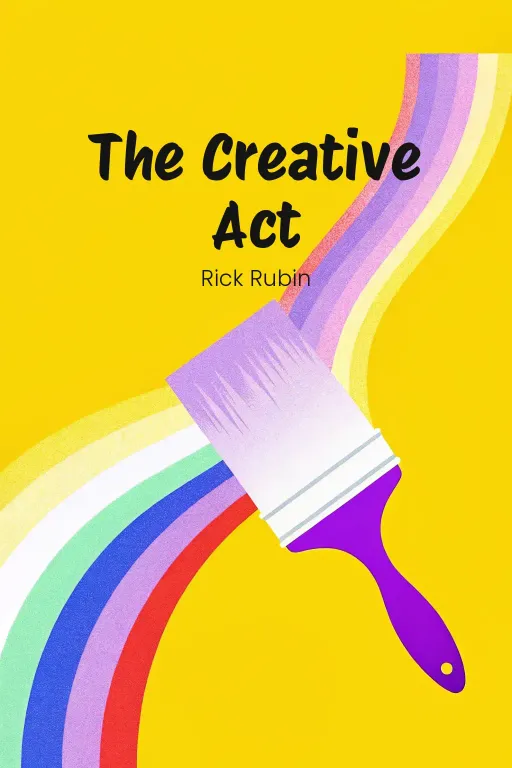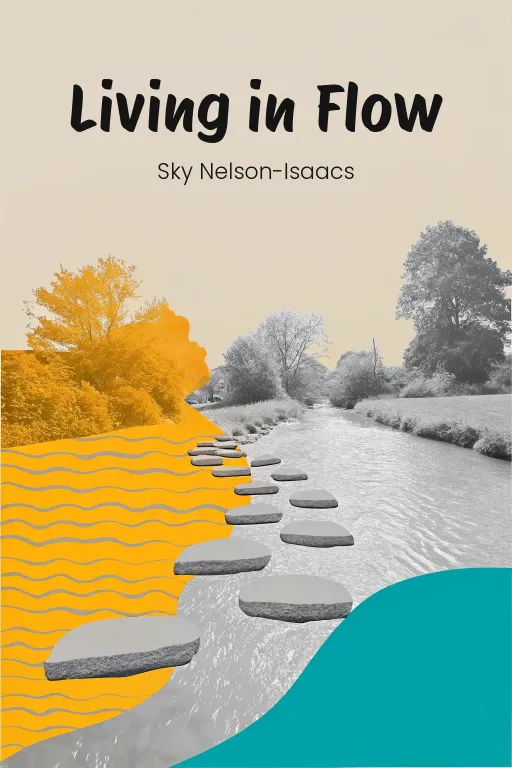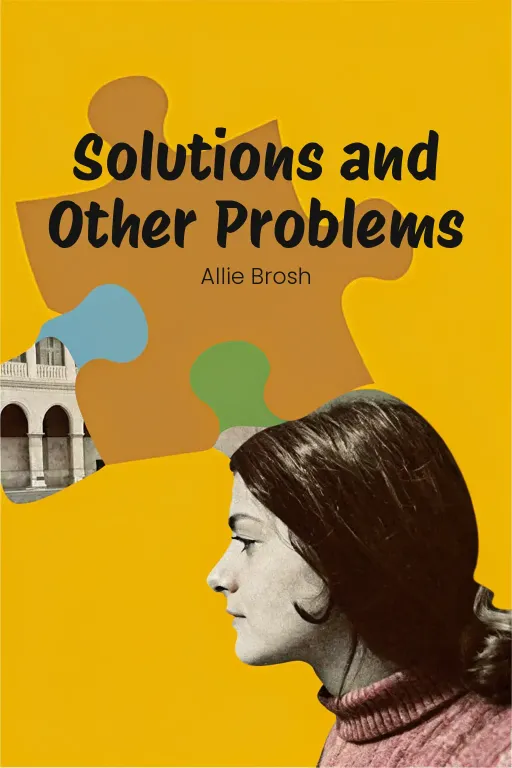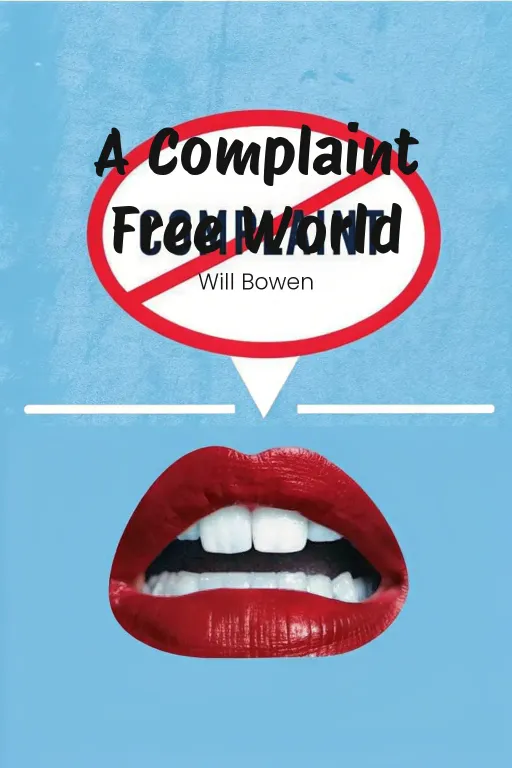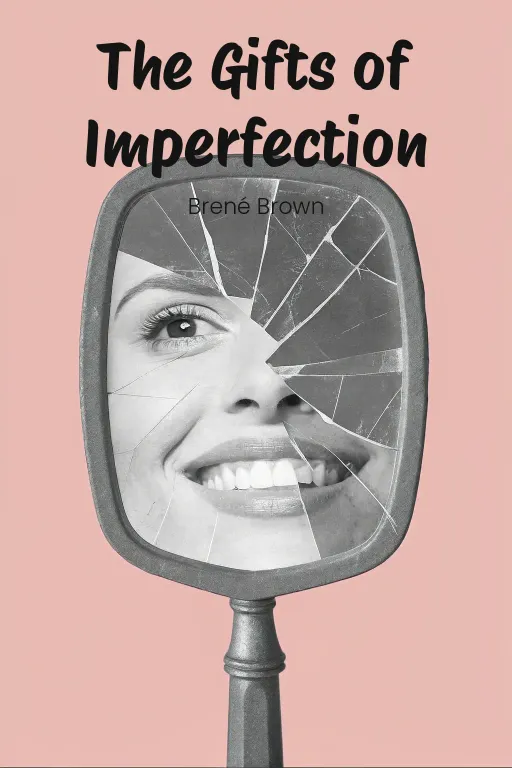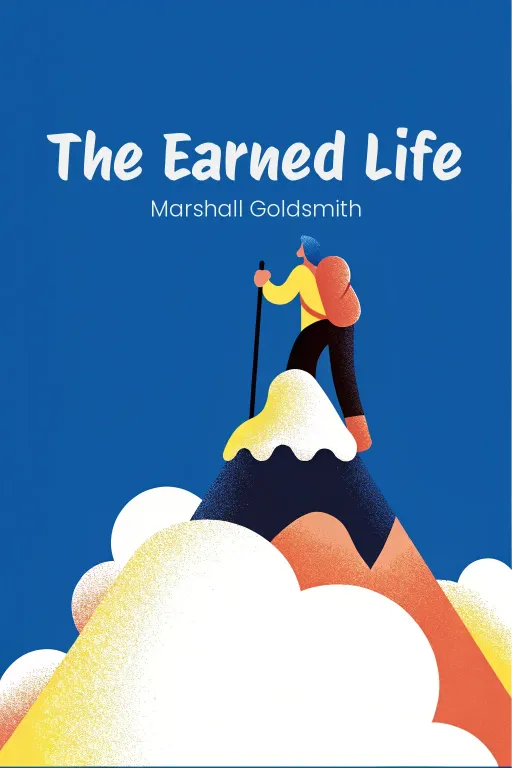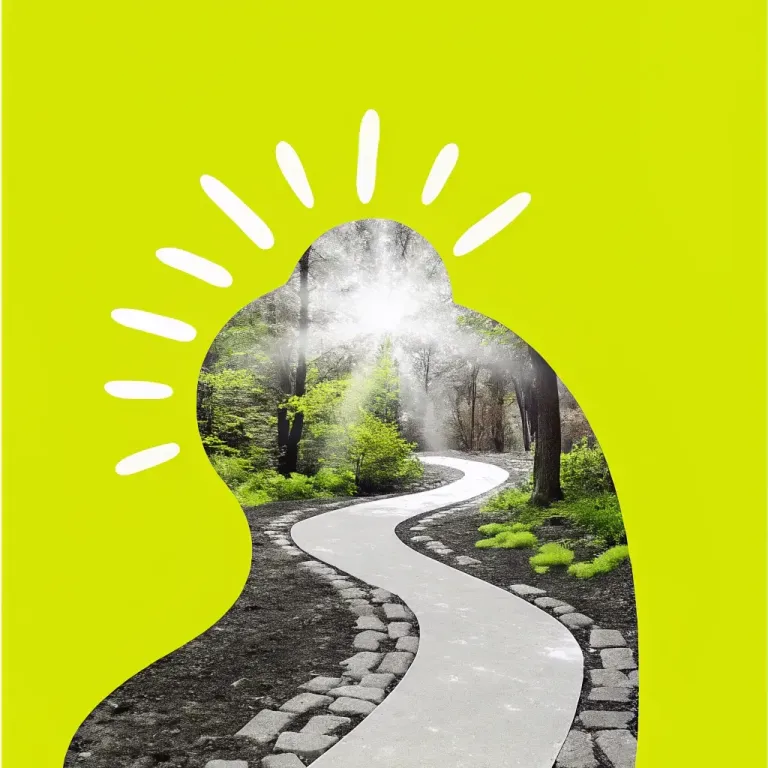
Happiness Is The Way: Choose Yourself Today!
Podcast by Beta You with Alex and Michelle
How to Reframe Your Thinking And Work With What You Already Have to Live the Life of Your Dreams
Introduction
Part 1
Alex: Okay, so let me ask you something – how often do we pin our happiness on external stuff, you know? Like a new job, a fancy house, or that “perfect” vacation? But what if I told you that true happiness isn't about what's “out there,” but what's in here? Michelle: Hold on, so you’re saying all that stuff… winning the lottery, escaping to a tropical island, or finally getting my hands on that vintage car, it's all irrelevant? It doesn't actually bring happiness? Alex: Exactly! That’s the core idea behind Dr. Wayne Dyer's book, "Happiness Is the Way." He basically argues that happiness is an internal state we can actively cultivate, regardless of what's happening around us. It’s about creating happiness by changing how we see ourselves and the world. Michelle: Hmm, interesting. But how do we actually do that? Telling someone to "just be happy" sounds a bit… simplistic, don't you think? Alex: Absolutely! That's why Dyer offers practical tools and different ways of looking at things. He challenges those limiting beliefs we all have and encourages us to approach life with self-awareness, resilience, and you know, a bit of love. This isn't just about, like, feel-good vibes. It's about learning to reframe challenges, taking responsibility for our lives, and living with purpose. Michelle: Okay, you’ve got my attention. So, what's on the agenda for today's deep dive? Alex: We're going to unpack three key areas. First, the power of owning our reactions, because true resilience is built from within. Second, we’ll talk about how our choices, not our circumstances, ultimately define our happiness. And third, how leading with love can create positive change in our lives and the world around us. Think of it as building a house: a solid foundation of responsibility, then add our choices to design the interior, and finally, we invite others to share that space with purpose. Michelle: I appreciate that metaphor. But I've got to ask, how practical are these ideas? What do choices or love have to do with everyday stuff like stress, dealing with failure, or, let's be honest, irritating coworkers? Alex: Those are the perfect questions! I think we’ll see how Dyer’s philosophy can transform those very challenges, bringing clarity, peace, and yes—happiness— into our lives.
The Power of Personal Responsibility
Part 2
Alex: Okay, so picking up where we left off, let’s really dive into the core of Dyer’s philosophy: the power of taking personal responsibility. He basically argues that our happiness is directly linked to how we take responsibility for our own emotions and reactions. You know, rather than blaming external factors or other people. Michelle: Right, so are we talking about someone stuck in traffic, totally fuming, and then saying, "This is all my fault!" Is Dyer suggesting some kind of emotional self-flagellation here? Alex: No, not at all! It's not about blame, it's actually about empowerment. Dyer uses this really nice, simple metaphor with an orange. When you squeeze an orange, orange juice comes out, right? Because that's what's inside. Similarly, when life "squeezes" us - like with stress or challenges - what comes out of us shows what we're carrying inside. If it's anger or impatience, that's on us, not on the traffic or the people around us. Michelle: So, life is just full of metaphors and… fruit squeezing? I get the idea, what’s inside matters. But how do we deal with deeper triggers, you know? Like, a car horn won't bother me if I'm already at peace, sure, but what if I'm carrying years of stress or unresolved stuff? Doesn't that need more than just shifting your perspective a little? Alex: Definitely, it does! And that's where Dyer's idea of "responding with ability" comes in. He means pausing and consciously choosing how to react, instead of just reacting without thinking. He also talks about self-reflection as a lifelong thing – unpacking those patterns you mentioned, like accumulated stress, and intentionally thinking, "Okay, how can I grow from this?" Michelle: "Responding with ability"... that sounds pretty ambitious, doesn’t it? It sounds good, but it's hard to pause when you're already reacting, right? Isn't the automatic response just to snap, like a reflex? Alex: Exactly! That is the challenge, but that's also growth. It’s about practicing that pause. He uses Eleanor Roosevelt's quote as inspiration: "No one can make you feel inferior without your consent." Think about it: someone cuts you off in traffic. They can't make you angry. That's your internal reaction to their action. Once you get that, it's incredibly freeing. You shift from being reactive to proactive. Michelle: Hmm, so I can't yell at the other driver anymore <Sigh>. But this makes me wonder about something bigger – Dyer talks about victimization versus empowerment. Don’t you think calling people "victims" of their emotions might sound dismissive or simplistic to someone who's genuinely struggling? Alex: That's a really good point, and I think Dyer is careful to acknowledge that struggle. His point isn't about brushing challenges aside. It's about shifting your mindset from "Why does this always happen to me?" to "What can I do differently?” He makes it clear that it's not about denying how hard things are, but about taking back the power that we unknowingly give away when we just blame outside things. Michelle: Okay, let’s get practical here. What's one tool Dyer suggests that people can try today? Alex: One of his go-to tools is self-inquiry. He encourages people to pause when they feel upset and ask themselves, "What does my reaction say about me?" Like, if someone gets super annoyed about a delayed flight, that might mean they struggle with patience or need to be in control. Dyer sees these reactions as clues, a mirror showing something valuable about ourselves. Michelle: Interesting – like detective work for your emotions. But doesn't constantly over-analyzing yourself risk spiraling into, well, more overthinking? Alex: It could, if you're judging yourself harshly. Dyer says this needs to be a compassionate practice. He even suggests journaling as way to get it all out and make sense of it. Write down what triggers you, look at it without beating yourself up, and you'll start to see patterns. Then, you can use those patterns to reframe situations or change how you react. Michelle: Okay, journaling I can get behind, I guess. Although I’m imagining a book that’s filled with entries like, “This idiot said X today, so I…”. Does he suggest specific things to write about, or is it more free-form? Alex: Great question! He does suggest prompts, like “What can I learn from this experience?” or “How could I have approached this differently?” The goal is clarity and accountability. And when you have that, you can pair journaling with reframing techniques. So, instead of seeing a delayed flight as wasted time, you see it as a moment to relax or read a book you’ve been meaning to get to. Michelle: I like an actionable example, because “reframing” feels both easy and impossible at the same time, doesn’t it? Small shifts in how you see something can move mountains—if you can actually manage to “really” do it. Alex: Exactly! And to help, he uses really vivid imagery throughout his writing. One of my favorites is his analogy of the lit candle. The flame is your inner peace, your sense of self. Life throws storms – traffic jams, work problems, someone saying something mean – but your job is to protect that flame from going out. Prioritize that instead of trying to control everything. Michelle: So, life's chaos is the wind, and I’m here with my metaphorical candle shield. Right, got it. I’m wondering though, does the book have any examples of people who’ve actually put this into practice? Situations where these ideas actually made a difference? Alex: Yes! There’s one story that really stuck with me, about a colleague of Dyer's who struggled with really bad impatience. They were always snapping at slow service or late meetings. Dyer suggested embracing their frustration rather than fighting it – actually observing it and sitting with it in the moment. So, next time their coffee order was slow, they just tried acknowledging, "I feel irritated," you know, instead of immediately acting on it. Over time, just being aware of it diffused their emotional response, and their patience grew a lot. Michelle: That’s counterintuitive, but kind of genius. Instead of fighting the irritation—by just letting yourself feel it—you take its power away. I’m gonna remember that next time I’m stuck behind someone paying for groceries in pennies. Alex: Exactly! It's about building emotional resilience. And once you start owning your inner state, you realize that external chaos has less control over it. It's a daily practice, but it changes your relationship with yourself and the world. Michelle: Alright, I’m sold on the core idea. So, we’ve covered attitude, self-inquiry, and these great metaphors. What comes next?
Choice and Self-Worth
Part 3
Alex: So, understanding that personal responsibility naturally transitions us to another core idea: how our choices “really” define our emotional well-being and, ultimately, our success. I think this is where Dyer “really” gets to the heart of how we can transform our lives through our own agency. It builds on that personal responsibility we talked about earlier, but it's more about giving us actionable steps—ways to actually take control and define our self-worth on our own terms. Michelle: Okay, this sounds like the foundation of any self-improvement journey, right? Choices and self-worth—it's like the classic motivational speech material. So, what's different about how Dyer approaches it? Alex: What makes Dyer stand out is that he makes these concepts so relatable and practical. He doesn't just say, "Make better choices." He “really” guides you to understand the stories and beliefs that are shaping those choices in the first place. And even questions if you truly believe in those beliefs. A huge part of his work is helping people sort of dismantle these inherited ideas about where they think they’re limited, and then pushing them to test those limits. Michelle: Inherited beliefs—so we're talking about the baggage we get from our families, from society, from our culture? Things we don't even realize are influencing us in the background? Alex: Exactly. He tells this story about a young woman who always dreamed of being a professional dancer, she truly wanted it. But she never pursued it because she'd convinced herself that she just wasn't "good enough." Now, that wasn't based on any real truth. It was based on societal conditioning and, to be honest, her reliance on what other people thought about her. Michelle: Let me guess, he told her to just go for it anyway? Alex: That's part of it, yeah. He explained that confidence doesn't actually lead to action, believe it or not, it's actually the other way around. Action leads to confidence. The moment you take that first step, even a tiny one, you start building evidence that you “are” capable. And that's exactly what she did. She started dancing, not because she felt confident, but because she decided to trust that the process itself would help her see her own value. Michelle: That's an interesting flip. We always think we need to feel ready first. But is there a risk of, you know, failing and just reinforcing those old doubts? Alex: That's definitely a valid question, but Dyer argues that failure is often just data, right? It's only detrimental if we interpret it as a reflection of our worth. So, for example, if this dancer stumbled during a performance, she could see it as proof that she's not talented. Or, she could see it as an opportunity to learn and improve. Again it all comes back to the mindset. Are you framing your experiences to reaffirm your worth, or are you framing them to erode it? Michelle: Okay, but let's talk about the practical side. How do you even begin to challenge these deeply ingrained patterns, especially these ones that feel like they've been stuck in your head since childhood? Alex: Dyer suggests a few tools. First, there's journaling, which is like a deep dive into your inner thoughts. You start by naming the beliefs that are holding you back, like "I'm too old to try something new," or "I'm just not smart enough." And then you kind of pick them apart, write down where they came from, and decide if they even align with your current values. Michelle: Sounds like a mix of interrogation and self-coaching. Alex: That's a great way to put it. He also suggests taking small, but meaningful actions to kind of "test" those beliefs. So, someone who believes that they're not good at academics might try taking just one course in something they find interesting. When they succeed, and passion often trumps raw ability, they can start to replace that old story with a new one that's based on, you know, actual experience. Michelle: So the idea is to slowly, but surely, prove yourself wrong. I can see the appeal in that. But, let's switch gears. What about external stuff? I mean, we live in a culture that emphasizes achievement. How do you maintain self-worth without getting caught up in the need for constant validation from accomplishments or other people? Alex: Yes, and that leads us perfectly to the heart of self-worth. Dyer draws a clear line between being a "human doing" and a "human being." The trap we fall into is that we start to equate our worth with productivity or success. He argues that true self-worth is intrinsic. It comes simply from being who you are, not from what you achieve. Michelle: I can already hear the skeptics saying, "But how do you measure intrinsic worth? And what does that even mean?" Alex: It's less about measuring and more about acceptance. Dyer gives the experience of people who define themselves by their job titles. What happens when they lose that job? Or when they retire? They feel lost, because they've built their identity on something that's external. Instead, he encourages people to shift their way of thinking. Like, "I am valuable because I exist, not because I achieve." Michelle: That sounds... idealistic. I mean, isn't it human nature to want to be recognized or validated by others? Alex: Oh, for sure, external validation feels good, right? But it isn't a secure foundation. Dyer says relying on it means you're giving other people control over your happiness. If someone praises you, you feel great. If they criticize you, you feel terrible. But when you root your worth internally, those opinions lose their power. Michelle: Makes sense in theory. But how do you actually internalize that? Do you just wake up and declare, "I'm good enough, regardless of what anyone says"? Alex: Well, it's “really” a process, not a declaration. Dyer suggests reflective practices, like gratitude exercises or affirmations. Gratitude helps you shift your focus to what you already have within you, or around you, rather than what you're lacking. And for affirmations, he recommends simple, intentional statements. "I am worthy as I am," for instance. Over time, repetition rewires the brain to be more focused on internal validation rather than external. Michelle: I like the gratitude angle. It feels less forced, more grounded. And it seems like it complements the journaling—reflecting on what's good while also digging into what holds you back. Alex: Absolutely. Gratitude and self-awareness are two sides of the same coin, right? One kind of grounds you in abundance, while the other illuminates where you can grow. And speaking of growth, Dyer promotes this concept of "no-limit thinking." The idea is to ask yourself, "What would I do if fear wasn't a factor?" Michelle: Ah, the "fearless life" premise. Let's hear it. Alex: It's a way to find your true passions. When you take away fear—fear of failure, fear of judgment, or even fear of success—you can focus on what truly excites you. Then you can start making choices with that vision, and not be held back by what you've inherited or what society thinks. Michelle: So, the essence here boils down to choice. Choosing to reframe moments, choosing to challenge beliefs, and choosing to act, even when you're afraid. Alex: Exactly. Choices are the threads we use to weave our lives. And when we make them consciously, guided by our own intrinsic self-worth, we create something authentic and fulfilling.
Living with Purpose and Love-Centered Leadership
Part 4
Alex: With a solid sense of self-worth as our foundation, the conversation naturally shifts to practical ways of turning those limiting beliefs into real growth. And that leads us to something even bigger: living with purpose and with love! Dyer really pushes this idea that personal growth shouldn't just be about “me,” but about how we impact those around us. Michelle: So, it's not just about feeling good, right? We’re talking about how your mindset and choices have a ripple effect. How your life influences the people you interact with every day. Alex: Precisely. Dyer argues that when discovering your purpose and embracing empathy as a leader, it uplifts both you and the world around you. It’s about sparking positive change while staying true to yourself. Michelle: Okay, let's unpack “purpose” first. Huge word, bigger implications. What's Dyer's take on actually finding it? Because “live with purpose” sounds great, but people rarely tell you how. Alex: That's why Dyer makes introspection the cornerstone. He basically says it’s not about chasing what society tells you to want. It’s about digging deep and finding out what truly excites you. He believes everyone has a unique gift to offer. Finding it requires courage and trusting that little voice inside. Michelle: Right, so less about climbing the ladder, more about figuring out what makes you tick. But how do you even begin when you've been trained to chase those external goals? Alex: Dyer uses the example of Peter, a corporate executive who had it all, at least on paper. But he felt empty inside. It wasn't until he re-evaluated his life and realized what he truly loved—mentoring young entrepreneurs—that he found his purpose. He left his job, started a business accelerator. He made less money, but his life satisfaction and impact on others just skyrocketed. Michelle: So Peter hit the reset button for some soul-searching, and then jumped into something meaningful. But let's be real. Not everyone can just quit their job! Bills, responsibilities… How do you balance that with chasing your passion? Alex: It's a valid point. Dyer isn't suggesting that we recklessly abandon responsibility. He's advocating for gradual alignment. It's about finding small ways to weave what fuels you into your current life. Peter likely didn't quit overnight. He probably started mentoring on the side, transitioning more fully as he became certain. Michelle: Okay, “small steps, big impact”, with purpose as our inner compass. But how does that feed into leadership? Because not everyone considers themselves a leader. Alex: That’s the beauty of Dyer’s angle. He redefines leadership so that everyone can do it, you don't even have to be someone's boss. Love-centered leadership isn’t about control. It’s about empathy, authenticity, and collaboration. Actually, leadership begins with leading yourself. Michelle: Okay, now we're getting somewhere I can use. But let’s make it practical. How does love… fit into leadership? “Loving leadership” sounds, well, kind of abstract. Alex: Dyer tells a story about Linda, a school principal who wanted to introduce mindfulness practices to her students. When the faculty resisted, she didn’t get defensive. She approached them with empathy. She listened to their concerns, shared research on the benefits, and positioned it as a way to support student success. She won them over not by force but by love. And the program became a success. Michelle: So, leading with understanding and not stubbornness. Got it. What's the big picture here? What does love-centered leadership do that other styles just can't? Alex: It builds trust, emotional intelligence, and encourages long-term collaboration. Leaders like Linda create environments where people feel valued, which inspires them to give their best. Dyer argues that fear-based or ego-driven leadership get you short-term gains, but it won't help nurture long term growth. On the other hand, love becomes a multiplying factor, which influences individuals and systems. Michelle: Ah, a pebble in the water makes ripples—am I getting ahead of myself or is this were Dyer's ripple metaphor comes in? Alex: You're spot on. The ripple effect is a great way to describe small acts of love that can create impact. It shows how love and integrity amplify change in ways you may not immediately see. Michelle: Okay, give me an example of this ripple effect in action. Who’s the pebble in Dyer’s pond? Alex: There's a story about Dr. Samira, who worked in a busy urban hospital. Faced with tons of work and burnout, she didn’t try to overhaul the entire system at once. Instead, she focused on small things—thanking her nurses, celebrating milestones, hosting debriefs with her team. This rebuilt trust, improved team dynamic, which in turn improved the patient care. Her influence created a ripple effect, fostering a culture of excellence and compassion. Michelle: I like how real that example is. Rather than trying to “fix” everything, Dr. Samira focused on connection—one interaction at a time. It feels counterintuitive when we're so focused on big solutions. Alex: Exactly. Dyer points out that lasting change grows through relationships, not grand gestures. Acts of love might feel small in the moment, but the effects accumulate, leading to big transformation. Michelle: Let's make this actionable. Someone wants to embrace love-centered leadership tomorrow-- inspired, but unsure where to begin. What’s Dyer's advice? Alex: He offers steps of integrating purpose and love. First, mindful reflection, journaling or meditating regularly to clarify your intentions. Next, practice empathy through active listening; to hear someone’s concerns without judgment builds a connection. And vulnerability, Dyer encourages leaders to embrace their flaws, showing that strength and imperfection can coexist. Michelle: And what about passions? You said purpose is vital, does that tie back to leadership too? Alex: Absolutely. Leaders who pursue their passions radiate authenticity and inspire others. Your fulfillment creates contagious energy. Whether it’s painting, volunteering, or simply recharging, aligning with your passions strengthens your leadership. Michelle: So self-awareness meets connection, which fuels growth. I can see how this creates feedback loops. It helps not just individuals but creates cultures. Alex: Exactly. That’s why he highlights the interplay between purpose and social impact. Living with purpose and love isn't just good for you; it creates harmony, innovation, and broad positive change.
Conclusion
Part 5
Alex: So, in a nutshell, Wayne Dyer's "Happiness Is the Way" really drives home the point that happiness isn't this prize we're waiting to win, or something we just trip over. It's something we actively grow from the inside out. When we own our reactions, challenge the beliefs that hold us back, and line up with a sense of purpose, then we're really building our own happiness, no matter what life throws at us. Michelle: Right, and it's not just about personal gain, either, right? That ripple effect idea “really” resonated with me—how small changes in yourself, driven by self-awareness and leading with love, can create waves that reach others. It reminds us that happiness and purpose aren't just for ourselves; they connect us to everything around us. Alex: Exactly! And if there's one thing I hope everyone takes away from this, it’s that happiness is a choice we get to make every day. So, start by asking yourself, "What's one belief or habit I can rethink today to bring more love, awareness, or just plain joy into my life?" Michelle: Good point, Alex. Whether it's shielding that inner spark, redefining your self-worth, or sending out those positive ripples, the power’s in your hands, right? Choose wisely, folks. Alex: Couldn't agree more. Thanks for listening, everyone. And remember, happiness isn't the destination; it’s the journey, it’s the way.



